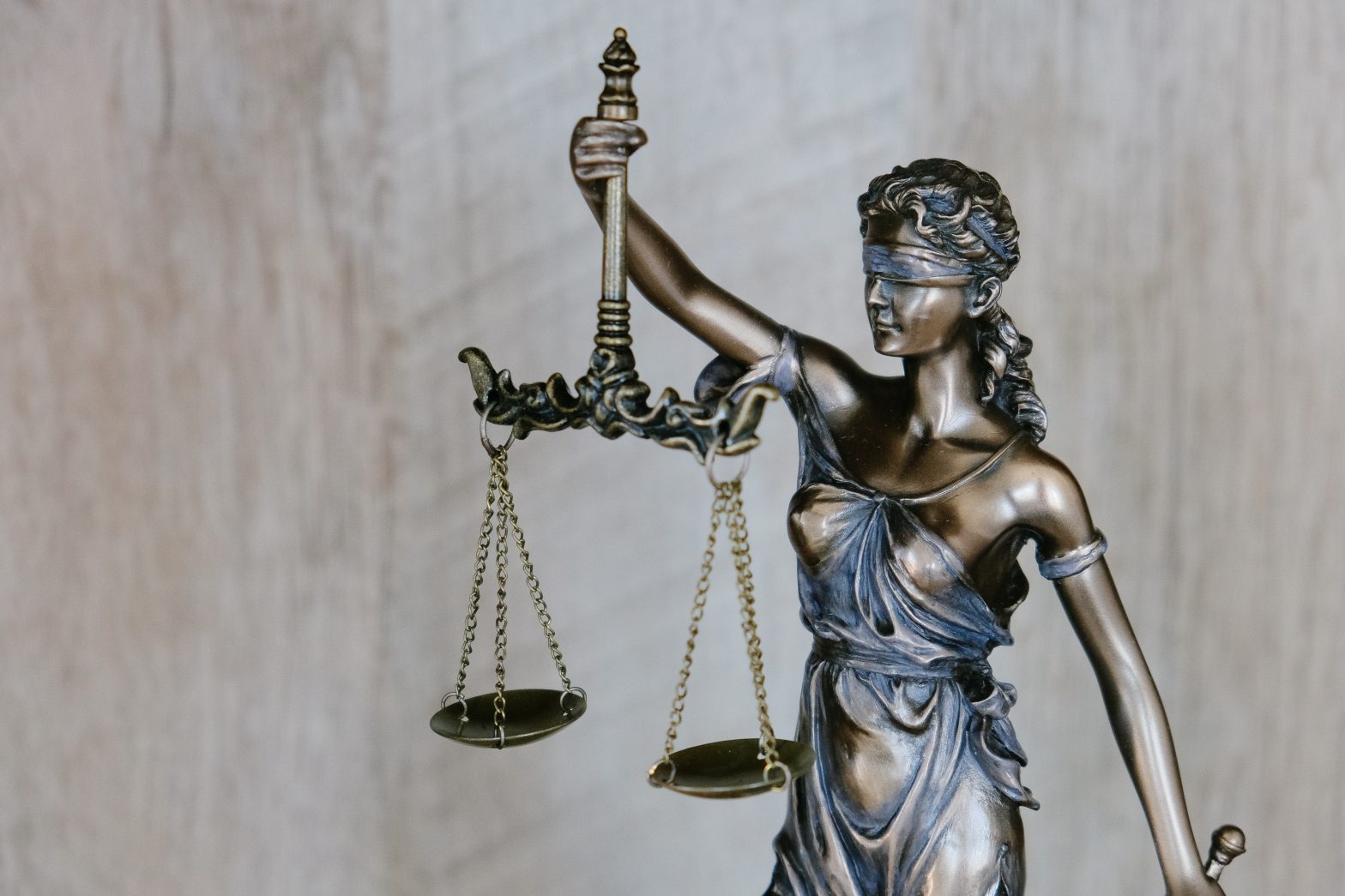Crafting compelling content for a criminal defense attorney’s website blog requires a deep understanding of the target audience—individuals facing criminal charges in Utah. By researching their needs and concerns, you can create informative posts that explain complex legal concepts in a clear and accessible manner. Showcase your expertise and experience through engaging case studies and real-life scenarios, instilling confidence and setting your firm apart. Address common legal concerns directly, providing reassurance and guidance. Incorporate personal stories to humanize your practice and create emotional connections. Optimize your content for search engines by conducting keyword research and incorporating keywords naturally. Every blog post should include a clear call-to-action, prompting potential clients to take the next step and seek assistance promptly.

This image is property of images.unsplash.com.
Why You Need a Criminal Lawyer
The Importance of Legal Representation
When facing criminal charges, the importance of having legal representation cannot be overstated. A criminal lawyer is your advocate, working tirelessly to protect your rights and interests throughout the legal process. From the moment you are charged with a crime until the resolution of your case, a skilled criminal lawyer will stand by your side, providing guidance and support.
Protecting Your Rights and Interests
One of the key roles of a criminal lawyer is to protect your rights. The legal system can be complex and intimidating, and without proper representation, you may unknowingly incriminate yourself or have your rights violated. A criminal lawyer will ensure that your rights are upheld at every stage of the process, including during police interactions, investigations, and court proceedings.
Additionally, a criminal lawyer will work tirelessly to protect your interests. Whether it’s negotiating a plea bargain or building a strong defense strategy for trial, your lawyer will explore all available options to achieve the best possible outcome for your case. With their expertise and knowledge of the law, they can identify weaknesses in the prosecution’s case and present compelling arguments in your defense.
Navigating the Legal System
The legal system is intricate and navigating it alone can be overwhelming. A criminal lawyer has a deep understanding of the legal processes and procedures involved in criminal cases. They will guide you through each step, explaining the intricacies of the system and helping you make informed decisions.
From understanding the charges against you and the potential consequences to advocating for your rights in court, a criminal lawyer will provide you with the information and support you need. They will handle all the legal paperwork, deadlines, and court appearances, allowing you to focus on your personal well-being and any other obligations you may have.
Areas of Expertise
A competent criminal lawyer possesses expertise in various areas of criminal defense. Here are some of the areas in which they specialize:
DUI Defense
DUI charges can have severe consequences on your driving privileges and personal life. A skilled DUI defense lawyer understands the intricacies of DUI laws and can challenge the validity of the evidence against you. They will work diligently to protect your rights and minimize the impact of the charges.
Drug Crimes
Drug crimes can range from simple possession to trafficking. A knowledgeable drug crimes lawyer will analyze the facts of your case, scrutinize law enforcement procedures, and challenge the prosecution’s evidence. With their expertise, they can build a solid defense strategy tailored to your specific circumstances.
White Collar Crimes
White collar crimes, such as fraud and embezzlement, are complex and often involve extensive financial records and evidence. A white collar crimes lawyer has a deep understanding of corporate law and financial regulations. They will employ meticulous investigation techniques and develop a strategic defense to combat the charges against you.
Assault and Battery
Assault and battery charges can carry significant penalties, ranging from fines to imprisonment. A skilled assault and battery lawyer will carefully examine the evidence, interview witnesses, and challenge the prosecution’s case. They will explore all possible defenses and fight vigorously to protect your rights.
Theft and Robbery
Theft and robbery charges can have long-lasting consequences. A seasoned theft and robbery lawyer will meticulously review the evidence, examine witness statements, and scrutinize police procedures. They will craft a defense strategy aimed at minimizing the impact of the charges and protecting your future.
Domestic Violence
Domestic violence cases require sensitivity and a thorough understanding of family law. A domestic violence lawyer will provide compassionate support while vigorously advocating for your rights. They will present a comprehensive defense strategy to safeguard your reputation and future.
Juvenile Offenses
When a juvenile faces criminal charges, it is crucial to have a lawyer who specializes in juvenile defense. Juvenile offenses require a unique approach, as the focus is often on rehabilitation rather than punishment. A skilled juvenile defense lawyer will navigate the complexities of the juvenile justice system and work towards the best possible outcome for the young individual.
Expungement
Having a criminal record can severely impact your future prospects. A criminal lawyer experienced in expungement can guide you through the process of clearing your criminal record. They will determine your eligibility, prepare the necessary paperwork, and advocate for your expungement, giving you a fresh start.
Probation Violation
Violating probation can result in serious consequences, including jail time. A probation violation lawyer will review the terms of your probation, analyze the alleged violations, and guide you through the legal process. They will work towards minimizing the impact of the violation and protecting your freedom.
Traffic Violations
Traffic violations can lead to fines, license suspension, and increased insurance premiums. A traffic violation lawyer will assess the details of your case, analyze the evidence against you, and develop a strategy to challenge the charges. Their goal is to protect your driving privileges and minimize any negative consequences.
Choosing the Right Criminal Lawyer
When selecting a criminal lawyer, several factors should be taken into consideration to ensure you receive the best possible representation. Here are some essential factors to consider:
Experience and Expertise
Look for a criminal lawyer with extensive experience in handling cases similar to yours. Experience brings knowledge and familiarity with the legal system, judges, and prosecutors. An experienced lawyer will be well-versed in the complex nuances of criminal defense and have a track record of success.
Track Record of Success
Review the lawyer’s track record of success. Research their past cases and outcomes to assess their abilities and effectiveness. A successful track record demonstrates a lawyer’s ability to navigate the legal system and achieve favorable results for their clients.
Client Testimonials
Read client testimonials and reviews to gain insight into the lawyer’s reputation and client satisfaction. Testimonials provide valuable firsthand accounts of clients’ experiences and can help you assess whether a lawyer is a good fit for your case.
Communication and Availability
Effective communication is crucial when working with a criminal lawyer. Choose a lawyer who is responsive, attentive, and provides regular updates on your case. A lawyer who values communication will ensure that you are informed and involved in the decision-making process.
Fees and Payment Plans
Discuss the lawyer’s fees and payment plans upfront to ensure transparency and avoid any surprises. Understand the billing structure and payment expectations before proceeding. While the cost should not be the sole determining factor, it is important to find a lawyer whose fees align with your budget and expectations.
Understanding the Criminal Defense Process
Navigating the criminal defense process can be complex and bewildering. Familiarizing yourself with the various stages can help you understand what to expect. Here is an overview of the typical stages in a criminal defense process:
Arrest and Booking
The process begins with your arrest, which involves being taken into custody by law enforcement. You will then be booked, which includes record-keeping, fingerprinting, and taking your photograph.
Arraignment and Charges
During the arraignment, you will be formally notified of the charges against you and asked to enter a plea. Your lawyer will guide you through this process and help you make an informed decision.
Investigation and Discovery
Your lawyer will conduct a thorough investigation of the case, reviewing evidence, interviewing witnesses, and examining law enforcement procedures. They will also analyze the prosecution’s evidence to identify any potential weaknesses or violations of your rights.
Plea Bargaining
In some cases, your lawyer may negotiate a plea bargain with the prosecution. This involves discussing potential alternative resolutions, such as reduced charges or penalties, in exchange for a guilty plea. Your lawyer will advise you on whether accepting a plea bargain is in your best interest.
Pretrial Motions
Your lawyer may file pretrial motions to challenge the admissibility of evidence, request the dismissal of charges, or seek other favorable rulings. These motions are essential in building a strong case and protecting your rights.
Trial
If your case proceeds to trial, your lawyer will represent you in court. They will present evidence, cross-examine witnesses, and make persuasive arguments to the judge or jury. Your lawyer will strive to cast reasonable doubt on the prosecution’s case and achieve a favorable verdict.
Sentencing
If you are found guilty or plead guilty, the court will proceed to the sentencing phase. Your lawyer will advocate for the most lenient sentence possible, presenting mitigating factors and arguing for alternative sentencing options.

This image is property of images.unsplash.com.
Penalties for Criminal Offenses in Sandy UT
The penalties for criminal offenses in Sandy UT can vary depending on the severity of the crime and the defendant’s criminal history. Here is an overview of the potential penalties for different types of charges:
Misdemeanor Charges
Misdemeanor charges generally carry less severe penalties than felony charges. The specific penalties can include fines, probation, community service, and incarceration for up to one year.
Felony Charges
Felony charges are more serious and can result in significant penalties. Felony convictions can lead to lengthy prison sentences, substantial fines, probation, mandatory counseling or treatment programs, and other collateral consequences.
Consequences of Convictions
In addition to the direct penalties mentioned above, a criminal conviction can have long-lasting consequences. These consequences can include damage to your reputation, difficulties finding employment or housing, loss of certain civil rights, and challenges in obtaining professional licenses or certifications.
Alternative Sentencing Options
In some cases, alternative sentencing options may be available, particularly for non-violent offenses or individuals with no prior criminal record. These alternatives can include diversion programs, drug or alcohol rehabilitation, community service, or deferred adjudication. Your criminal lawyer can explore these options and advocate for their use when appropriate.
Working with a Sandy UT Criminal Lawyer
When working with a Sandy UT criminal lawyer, you can expect a comprehensive and strategic approach. Here is how the process typically unfolds:
Initial Consultation
The first step is an initial consultation, during which you meet with the lawyer to discuss your case. This consultation allows the lawyer to understand your situation, assess the strengths and weaknesses of your case, and determine the best course of action.
Case Evaluation and Strategy
Following the consultation, your lawyer will conduct a thorough case evaluation. They will examine the evidence, review relevant laws, and analyze the potential defenses available. Based on this evaluation, they will develop a tailored defense strategy designed to achieve the best possible outcome for your case.
Legal Defense Plan
Your lawyer will develop a comprehensive legal defense plan, outlining the steps they will take to protect your rights and interests. This plan may include investigation, evidence collection, witness interviews, expert consultations, and the development of legal arguments to challenge the prosecution’s case.
Investigation and Evidence Collection
Your lawyer will meticulously investigate the details of your case. This involves gathering evidence, interviewing witnesses, reviewing police reports, analyzing forensic evidence, and scrutinizing the prosecution’s evidence. Thorough investigation is crucial in building a strong defense strategy and identifying any weaknesses in the prosecution’s case.
Negotiation and Plea Bargaining
If the circumstances warrant it, your lawyer may engage in negotiation and plea bargaining with the prosecution. They will advocate for a favorable resolution that minimizes the impact of the charges against you. Your lawyer will keep you informed throughout this process and provide guidance on whether accepting a plea bargain is advantageous in your specific case.
Trial Preparation and Representation
If your case proceeds to trial, your lawyer will engage in meticulous trial preparation. This includes preparing witnesses, strategizing cross-examinations, developing opening and closing arguments, and preparing exhibits and evidence for presentation in court. During the trial, your lawyer will represent you vigorously, presenting your defense effectively and asserting your rights.
Appeals
In the event of an unfavorable outcome at trial, your lawyer can explore the possibility of filing an appeal. Appeals involve reviewing the trial process for errors or constitutional violations that may have affected the outcome. Your lawyer will guide you through the appeals process and advocate for your rights in appellate court.

This image is property of images.unsplash.com.
Tips for Handling Police Interactions
Being aware of your rights and knowing how to handle interactions with the police can protect your interests. Here are some important tips to keep in mind:
Know Your Rights
Familiarize yourself with your rights under the law, including your right to remain silent, your right to an attorney, and your right against unlawful searches and seizures. Knowing your rights empowers you to protect yourself effectively during police interactions.
Remaining Calm and Cooperative
It is important to remain calm and composed during interactions with the police. Cooperate within reasonable limits, providing your identification when asked and following lawful orders. However, avoid volunteering information beyond what is necessary, as it may be used against you later.
Exercising the Right to Remain Silent
Exercise your right to remain silent. Refrain from answering potentially incriminating questions without the presence of a lawyer. Respectfully inform the officer that you would like to exercise your right to remain silent until you have obtained legal counsel.
Requesting Legal Representation
If you are arrested or detained, politely and firmly request legal representation. Remember that you have the right to an attorney, and it is crucial to have legal counsel present during any questioning or interrogation. Your lawyer will protect your rights and ensure that you do not inadvertently incriminate yourself.
Common Defenses Used in Criminal Cases
A skilled criminal lawyer will employ various defense strategies based on the specific circumstances of your case. Here are some common defenses used in criminal cases:
Alibi
One defense strategy involves presenting an alibi. An alibi is evidence that demonstrates the defendant was somewhere else at the time the alleged crime took place. This can include witness testimony, video footage, or any other evidence that supports the defendant’s claim of not being present at the scene of the crime.
Self-Defense
Self-defense is a defense strategy used when the defendant acted to protect themselves or others from imminent harm. To establish self-defense as a defense, it must be shown that the defendant reasonably believed they were in immediate danger and that their actions were necessary to defend themselves or others.
Mistaken Identity
Mistaken identity occurs when the defendant is wrongfully identified as the perpetrator of a crime. This defense strategy involves presenting evidence that the defendant was misidentified and establishing an alternative explanation for their presence or actions.
Entrapment
Entrapment occurs when law enforcement induces a person to commit a crime they would not have otherwise committed. The defense of entrapment requires demonstrating that the defendant was induced or coerced by law enforcement into committing the offense.
Insufficient Evidence
The defense of insufficient evidence involves arguing that the prosecution has failed to present enough evidence to establish guilt beyond a reasonable doubt. Your lawyer will challenge the validity and reliability of the prosecution’s evidence, seeking to cast doubt on their case.
Violation of Constitutional Rights
A violation of constitutional rights occurs when law enforcement violates the defendant’s rights during the investigation or arrest process. This can include illegal searches and seizures, Miranda rights violations, or the improper use of force. Your lawyer will seek to have any evidence obtained through constitutional violations excluded from court proceedings.
Dealing with a Criminal Record
Having a criminal record can have significant negative impacts on your life. Understanding how to deal with a criminal record and the options available can help you navigate its consequences. Here are some key considerations:
Expungement Eligibility
Expungement is a legal process that allows individuals to clear their criminal records. Eligibility for expungement varies depending on factors such as the nature of the offense, time passed since conviction, and compliance with all court-ordered obligations. Your lawyer can assess your eligibility and guide you through the expungement process.
Expungement Process
The expungement process involves filing a petition with the court, providing supporting documentation, and attending a hearing. The court will evaluate factors such as your criminal history, rehabilitation efforts, and the impact of expungement on public safety. If granted, your criminal record will be sealed or destroyed, and in some cases, you can legally deny the existence of the expunged conviction.
Benefits of Expunging a Criminal Record
Expunging a criminal record carries several benefits. It can enhance your employment prospects by allowing you to truthfully state that you have no convictions on job applications. It can also improve your eligibility for housing, loans, and professional licenses. Additionally, it provides a fresh start and the ability to move forward without the stigma of a criminal record.
FAQs About Criminal Defense in Sandy UT
Here are answers to some frequently asked questions about criminal defense in Sandy UT:
What should I do if I’m arrested?
If you are arrested, it is essential to remain calm and invoke your right to remain silent. Do not provide any incriminating information before consulting with a criminal lawyer. Contact a trusted criminal lawyer as soon as possible to guide you through the legal process and protect your rights.
Can I represent myself in a criminal case?
While it is possible to represent yourself in a criminal case, doing so is highly discouraged. The legal system is complex, and experienced criminal lawyers possess the knowledge and skills to effectively navigate it. Having a lawyer on your side significantly increases your chances of achieving a favorable outcome.
How long does a criminal case take?
The duration of a criminal case can vary widely depending on the complexity of the charges, the backlog of cases in the court system, and other factors. Some cases can be resolved quickly, while others may take several months or even years to reach a resolution. Your lawyer can provide a more accurate estimate based on the specifics of your case.
What are the potential penalties for my charges?
The potential penalties for your charges depend on various factors, including the nature of the offense, your criminal history, and the circumstances surrounding the alleged crime. Penalties can range from fines and probation to imprisonment. Consulting with a criminal lawyer is crucial to understanding the potential consequences you may face.
How much does a criminal lawyer cost?
The cost of hiring a criminal lawyer can vary depending on factors such as the lawyer’s experience, reputation, and the complexity of your case. Some lawyers charge an hourly rate, while others offer flat fees. It is important to discuss fees and payment plans with your lawyer during the initial consultation to ensure transparency and avoid any surprises.
In conclusion, having a criminal lawyer by your side is crucial when facing criminal charges. They protect your rights, navigate the legal system on your behalf, and work to achieve the best possible outcome for your case. By choosing a skilled and experienced criminal lawyer, you can trust that your rights and interests will be fiercely advocated for. Whether you are facing DUI charges, drug crimes, or other criminal offenses, a criminal lawyer will provide you with the guidance and support you need throughout the process.




